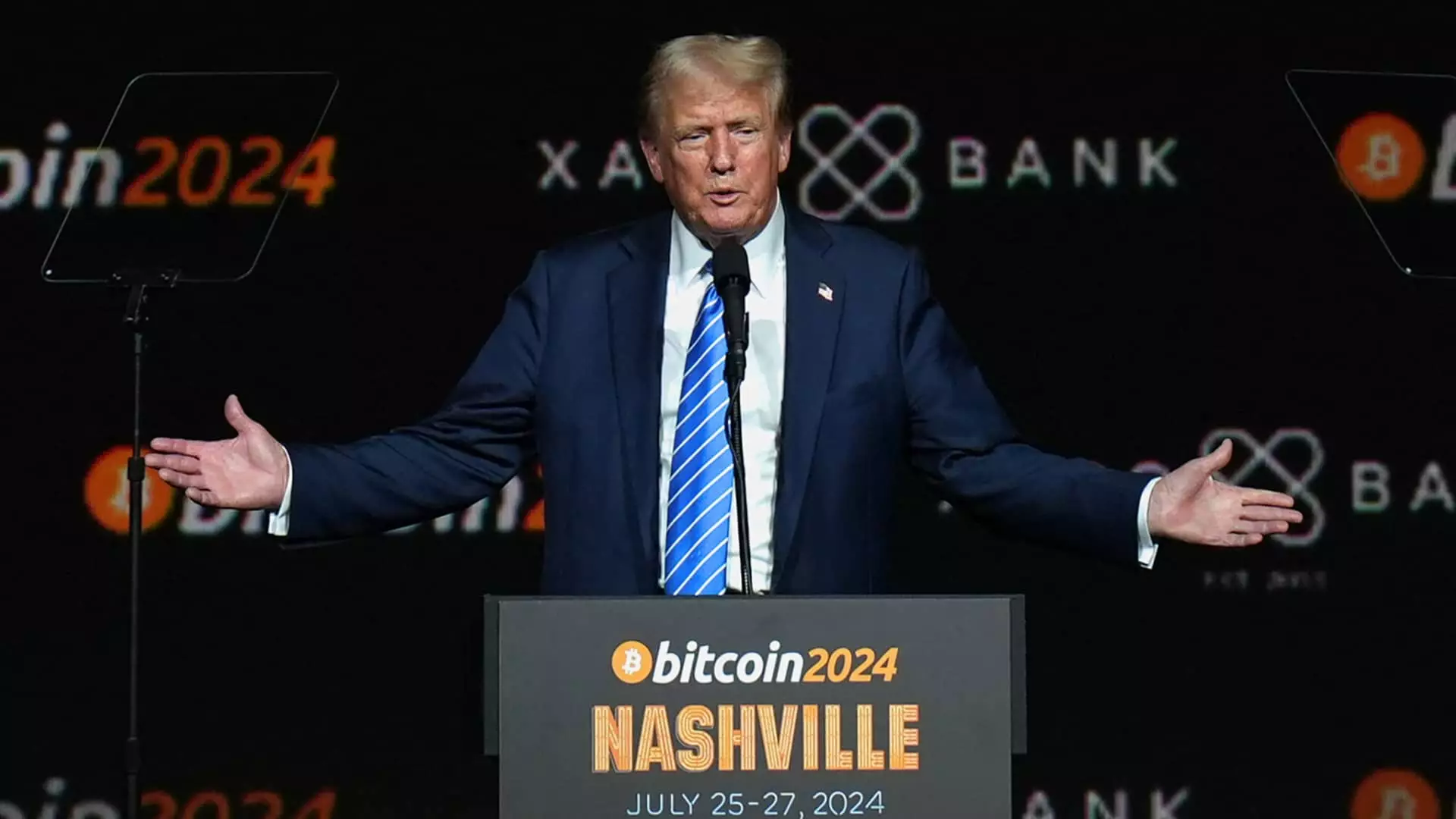Donald Trump’s foray into the cryptocurrency sphere with his venture, World Liberty Financial (WLF), has ignited significant speculation and scrutiny. The release of the World Liberty Gold Paper, a comprehensive 13-page document, outlines the operational framework and financial mechanics of the WLF project. This article critically analyzes the implications and potential ramifications of Trump’s venture into the world of cryptocurrency, offering insights beyond the mere surface details.
World Liberty Financial positions itself as a “crypto bank,” offering services that encourage customers to engage in borrowing, lending, and investing in digital currencies. The project’s ambition is underscored by its goal of raising $300 million in an initial token sale, with a projected company valuation of $1.5 billion. As it caters to the burgeoning decentralized finance sector—appropriately branded as “The DeFiant Ones”—WLF aims to tap into the financial trends that have captivated investors worldwide.
However, while the goals may seem ambitious and appealing, careful analysis raises questions about the feasibility of such lofty expectations. Given the current metrics, with only $12.9 million worth of tokens sold at launch, one must ponder whether WLF can truly reach its financial aspirations. Furthermore, skepticism around such projects is not uncommon, especially regarding their actual utility and longevity.
Central to the WLF offering is the distribution of “$WLFI” tokens. The document stipulates that Donald Trump and his family could claim a staggering 75% of the net revenue—translated into approximately 22.5 billion tokens valued at around $337.5 million. This allocation raises significant ethical questions about the potential for conflict of interest. Despite the paper’s assertion that the project is non-political and devoid of affiliations to any campaigns, the financial benefits to Trump’s family cannot be overlooked, particularly given his candidacy for the presidency.
Additionally, Trump and his family have absolved themselves of any operational liabilities, a factor that could lead to a lack of accountability among high-ranking officials in the organization. In compliance with regulatory scrutiny, the parameters surrounding financial disclosures and operations may potentially provide a loophole for personal benefit over genuine investment interests—a trait often seen with crypto enterprises where transparency is paramount.
The delineation of the revenue structure as outlined in the WLF document showcases an intricate web of financial arrangements. A Delaware-based entity, DT Marks DEFI LLC, is slated to receive three-quarters of the net protocol revenues, functioning as a hub for monetary distribution. The remaining 25% of net revenue will benefit Axiom Management Group, a Puerto Rican LLC with connections to notable individuals close to Trump, including Steve Witkoff.
Such affiliations evoke further concern about the intertwined relationship between politics and business. Ethically, when an enterprise has key players with political ties benefiting from its establishment, the integrity of operations is compromised, leading potential investors to question whether the focus remains on market viability or political gain.
The cryptocurrency landscape is notoriously volatile, and as projected growth for WLF hinges on investor confidence, market conditions could dictate the likelihood of its success. The initial allocation plan’s subjectivity, particularly concerning the distribution of tokens to the Trump family and the co-founders, suggests a precarious balancing act between investor transparency and organizational trust.
Furthermore, the document’s fine print indicates that initial token distributions are subject to changes—a crucial detail that could lead to dissatisfaction and mistrust among early investors should the project fail to deliver on its promises or adjust allocations post-launch.
While World Liberty Financial presents an alluring narrative with an innovative crypto banking concept, it is essential for potential investors to scrutinize the financial framework, ethical implications, and market landscape. As Trump’s venture unfolds, the intersection of politics and finance remains a focal point worth observing, especially given the increasing concerns around transparency, accountability, and the authenticity of crypto projects in today’s market. The stakes are significant not only for Trump’s political career but for the broader crypto ecosystem as it continues to evolve.

